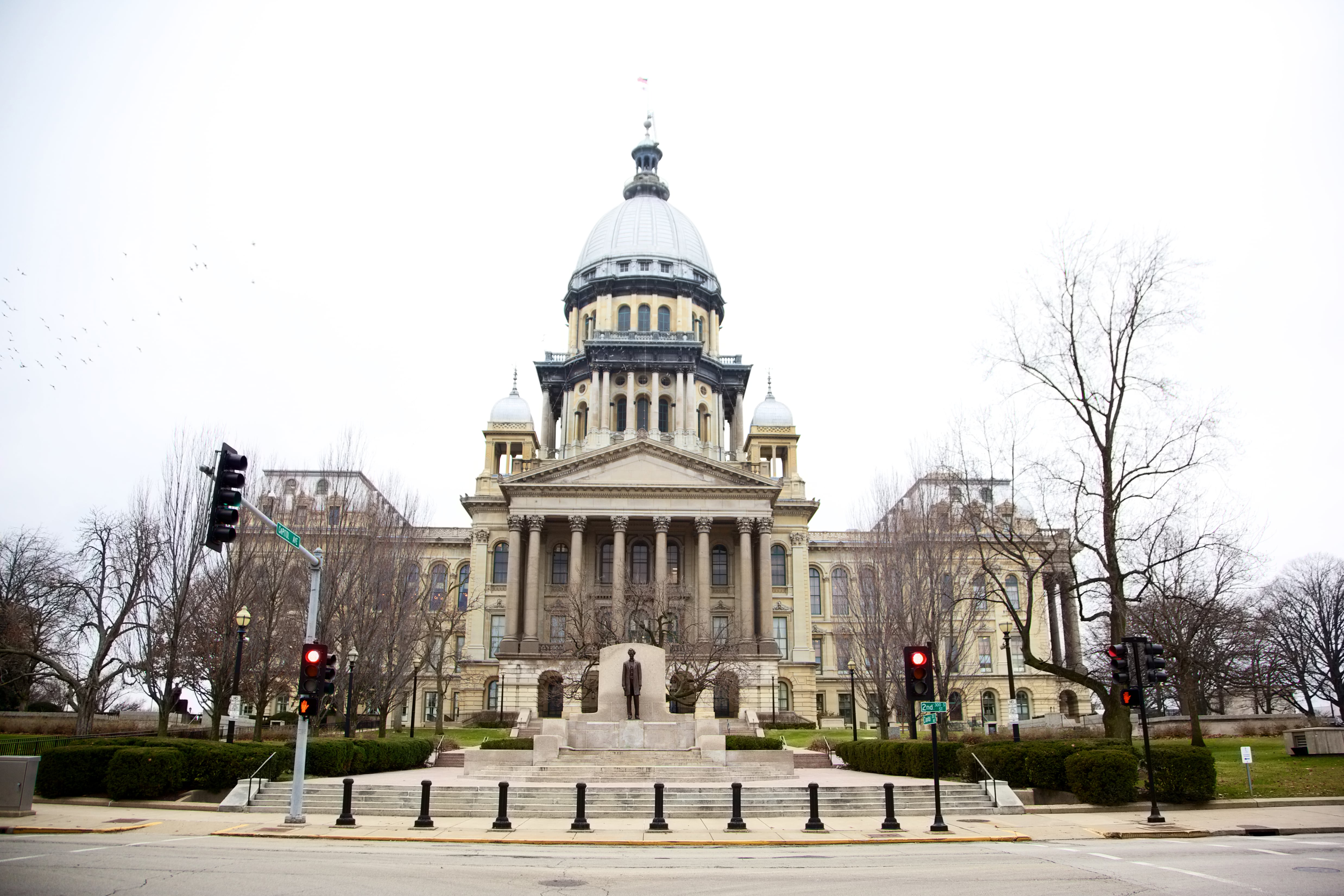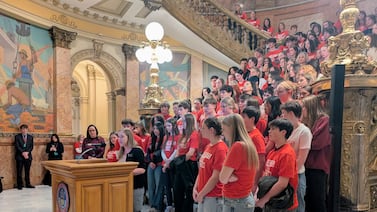Sign up for Chalkbeat Chicago’s free daily newsletter to keep up with the city’s public school system and statewide education policy.
State lawmakers are proposing a bill that would allow elected Chicago’s school board members to receive compensation — a move advocates hope will encourage parents from low-income households to run for seats when the board shifts from appointed to elected.
State Sen. Robert Martwick and State Rep. Kam Buckner, who both represent parts of Chicago, announced at a press conference Tuesday morning a proposal to lift a prohibition in state law that prevents Chicago’s elected school board members from receiving compensation. The bills in the Senate and House, introduced during the fall’s veto session, would not mandate the school district to provide a salary or set minimums for how much school board members get paid.
Under a bill passed by the state legislature in 2021, Chicago’s board of education will transition from a seven-member mayoral-appointed board to a 21-member elected school board by January 2027. Ten of 21 school board seats will be up for election during the general election in November 2024.
Currently, Illinois law permits school board members to be reimbursed for certain expenses, but they do not earn a salary or stipend.
“I’ve had a number of conversations with people who live in my district from South Shore to Woodlawn who want to be a part of the solution, who want to be a part of this generational shift of a new elected school board,” Buckner said. “However, they don’t know how they’re going to do it and work the night shift.”
State lawmakers have a short window to pass the proposal. This fall’s legislation session is only six days and is currently scheduled to end on Nov. 9.
Courtney Hrejsa, executive director of Educators for Excellence, said in an interview with Chalkbeat the organization is behind this proposal because it hopes pay will persuade teachers to join the elected school board. The lack of a stipend or compensation is a major barrier to teachers who might be interested in running for school board, Hrejsa said.
“Teachers are typically middle-class residents of Chicago. They are breadwinners for their families and their income is required for their livelihood,” said Hrejsa. “If we are unable to provide them any sort of compensation for board service, we’re essentially excluding them from realistically being able to serve. That will not result in the best governance of our school system.”
Under the current law, employees of the school district are not allowed to sit on the elected school board, so a teacher would have to quit their job in order to serve.
Kids First Chicago, a parent advocacy group, surveyed almost 800 Chicagoans earlier in the fall to ask their opinions on Chicago’s elected school board. Over 70% of respondents believe board members should receive a stipend of salary.
Lorena Lopez, a parent and advocate with Kids First Chicago, said in an interview with Chalkbeat it’s only fair to pay parents for the time spent “helping the Board of Education.”
The issue of pay for Chicago’s elected school board members was taken off the table in 2021. Martwick, who sponsored the elected school board bill, pushed for compensation at the time, but said he ultimately took out the provision to get support for the legislation from some suburban and rural legislators. Martwick believes now is a good time to revive this issue during the session.
In an interview with Chalkbeat Chicago, Martwick said the proposal only focuses on Chicago at the moment, but he would not be opposed to supporting a bill from other legislators that would allow school boards across the state to decide whether they want to compensate members.
“The reason that we’re doing it for Chicago is because that’s what we’re focused on.” Martwick said. “We’re in the midst of creating (district) maps, figuring out how the process of elections is going to happen, and figuring out how we’re going to transition from 10 to 20.”
In Los Angeles, elected school board members make $125,000 if they don’t have outside employment and $50,000 if they do. Appointed school boards, such as those in New York City and Philadelphia, are not paid.
In Indiana, school board members can get a stipend of up to $2,000 per year, in addition to meeting stipends that max out at $112. Florida and Nevada allow school board members to be paid a salary.
Currently, Chicago City Council members are paid. According to Block Club Chicago, most aldermen will make $145,974 in 2024, with the lowest paid taking home $118,392.
Samantha Smylie is the state education reporter for Chalkbeat Chicago covering school districts across the state, legislation, special education and the state board of education. Contact Samantha at ssmylie@chalkbeat.org.
Becky Vevea is the bureau chief for Chalkbeat Chicago. Contact Becky at bvevea@chalkbeat.org.







